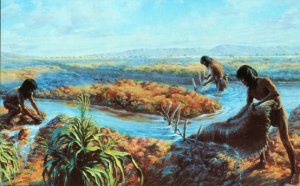1 Near the end of this section of the reading, Erik Larson writes of the “turmoil and grief engulf[ing] Chicago.” “The old world,” he notes, “was passing” (121-22). Based on what you’ve read so far, what do you think was the most significant issue or tension in the United States in the 1880s and 1890s, and why? Cite evidence from the book to support your choice.
I think some of the most significant issues in the United States around this time was trying to be the most innovative and grandest. It was obvious that times were changing and things were being more progressive, so everyone wanted that coveted title of being the person or the first to create something so large. The book speaks the competition to have the World’s Fair come to New York City, Washington, St. Louis, or Chicago. Every city wanted it because it would show how extraordinary they are and how important that city is to them. Burnham and Root were working on building the tallest buildings in the country, and finding new ways to lay the foundation. With things changing so fast and so often this time made it hard to keep up with absolutely everything that was going on. People were being introduced to ideas that were wild and sinister, and since so many were focusing on being the best and the greatest these people were able to practice these things they had heard about almost unnoticed.
2 Why do you think Larson has chosen to intertwine the story of the fair with that of Holmes?
I think Larson decided to intertwine the store of Holmes with the fair because Holmes is the perfect example of someone that was willing to do whatever it took to be successful. With the fair coming into town many saw this as the perfect opportunity to find success. Holmes knew how to use his strengths to talk his way into almost anything he wants. Before coming to Chicago he traveled all around the Northeast in search of finding something he could be successful at. Holmes, like many, was not worried about ethics during this time, as cited above, “turmoil and grief” was surrounding the city, and he was part of that. Having so many people in one place made it easy to hide the wrongdoing that was going on. He saw opportunities and he took it, preying on anyone’s weakness.




